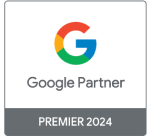Google has been hard at work rolling out the new Ads interface over the past couple of months, and to tie in with this we have seen a number of updates, including bid adjustments for calls, shopping showcase ads and ad variations.
The latest update to Google Ads is that exact match keywords are to now include keywords that have the same meaning. Through machine learning, your exact match keywords will now serve ads to match the intent of the user. The days of exact match keywords being served for the exact query are long gone – in June we saw exact match open up with the inclusion of similar words and re-ordering. Add this recent update into the equation and we are looking at a much wider scope.
What will this look like?
Here’s an example of the queries you could be matching for:

Machine learning plays an important role in this update. If Google understands the intent of a query and this does not match the keyword, it will not show. The basic premise of exact match is still in place, so with the above example if a user searched for “lake district hostels” or “hotels in the lake district” Google would differentiate between camping and hotels/hostels as one user will be looking for a room and the other for a patch of grass to pitch a tent.
Why has this change been made?
Over the past few years, the reliance on machine learning in paid media has grown rapidly to better match user queries with keyword intent. All the actions being undertaken in the search terms report do not go unnoticed by Google; these are key in helping train the algorithms to what is/isn’t a query with matching intent.
Head of Search at Google Ben Gomes stated that “15% of searches we see every day are new“. Pretty amazing, right? Now think about campaign management on a day to day basis – do you really want to be building endless lists of keywords and negatives? The expansion of exact match provides the opportunity to allow machine learning to fill the gaps between your keywords and new search queries, saving time while keeping a close focus on the lists we want to be bidding on.
The more we delved into this we found ourselves asking the question, “is exact match going to become extinct?”. Phrase and modified broad match have typically been the more ‘open’ match types, however, these two could become more prevalent if exact match continues to be loosened up. It is worth noting is that the change to close variants does not apply to broad match, so when a user searches for “cheap camping in the lake district” your ad will not show for “cheap campsites in the lake district” – begging the question, is phrase going to be the exact match?
All changes are made with the advertisers best interests in mind, but they have to be financially beneficial for Google, and this is one that will undoubtedly generate substantial increases in revenue. Here at Hallam, our paid media team is made up of experts who are on the pulse of Google updates and take the correct steps to roll out changes for the benefit of our clients. Issues start to arise when lesser experienced teams/individuals are involved in campaign management when a match type is broadened to the extent of this update – spend will increase, more management is required and a sense of control is lessened.
What do you have to do now?
Query management. If you’re in paid media, query management won’t be something new. To keep ahead, ensure you are on top of your queries – take changes in your stride and search for gold in the search terms, ensure you periodically review your reports and bulk out your negative keyword lists.
If you are utilising Google Ads scripts, ensure you have accounted for this expansion – Dan Gilbert @ Brainlabs has written a script that looks at “the close variant search queries in active campaigns from the last 30 days. If a query doesn’t precisely match the exact keyword, that query is added as an ad group negative”. Personally, I wouldn’t recommend importing this script straight into your account as a fix-all. Instead, scheduling the script to analyse the campaigns and feeding back the results will be a much better approach. This will also help give you a scope for how wide the net has been cast with your exact match terms – dependant on the size of your account/s it may not have particularly affected your query levels.
The changes for the update will be rolled out for English keywords throughout October, and all other languages will be actioned over the following months. According to Search Engine Land, Google will always prefer the exact match over the paraphrases and same meaning terms, so we have that to fall back on.
What are the results?
Google’s early tests showed that advertisers using exact match saw on average 3% more clicks and conversions. Google also stated that they ran a beta test with Extra Space Storage who were “very satisfied with the quality of matches during the pilot”. This kind of positive feedback is ever present with all Google updates, however with the scale of the update and the actions above, keeping a lid on things shouldn’t be a huge task.
Do you need help with your PPC following these changes? Don’t hesitate to get in touch.





